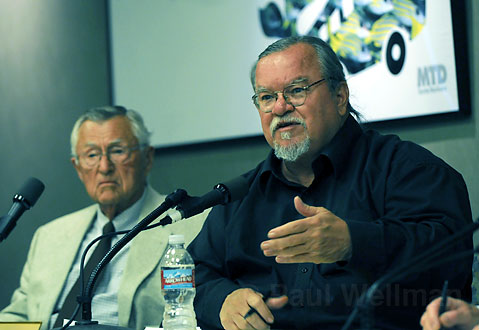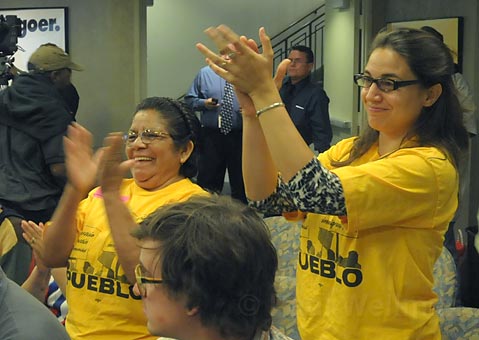Bus Fares Hiked
Opponents Content with Small Increase

Dora Perez doesn’t have a car. The 36-year-old Westside resident depends on the bus to get to classes at Santa Barbara City College and to her job in Goleta. As she puts it, “I use the bus for everything.” Her modest earnings go mostly toward books and tuition, which she began 10 years ago to learn English.
Currently, she invests in a 30-day bus pass that, as a student, costs her $32. Should the bus fares have been bumped too high-an issue the Santa Barbara Metropolitan Transit District (MTD) took up on September 8-Perez would have been unable to invest in the longer-term passes and, instead, been forced to pay daily fares at a higher price. Many of Perez’s friends, especially those with kids, are in similarly predicaments, which is why a coalition-including transportation and clergy groups, the Santa Barbara County Action Network, and PUEBLO, a working class advocacy group-organized over recent months to support working-class families who most frequently use the bus system.

The collaboration worked, as the MTD board adopted a set of fare changes lower than proposed by its staff. Though higher than the current fares, new rates-set to begin January 1, 2009-were almost inevitable, as pricey fuel and flat revenue forced the board to find $1.5 million to continue maintaining service to the South Coast. And while ridership also continues to increase because of rising gas prices, fare revenue still comprises about 40 percent of MTD’s income. There has already been a slight reduction in one line, which was seeing some areas not being utilized enough. At the September 8 hearing, various members of the public asked the MTD board for free buses, unchanged fairs, or discounts for poorer users, while still others supported whatever increase was deemed necessary to maintain service.
Come the new year, the regular cash fare will be raised from $1.25 to $1.75, while the adult 10-ride pass will be raised from $10 to $11.50 and 30-day passes from $41.00 to $52.00. Fares for students, seniors, and the disabled also rose proportionally. “We’re not talking about huge increases,” said MTD boardmember Roger Aceves. “[The increase costs] a bit of money, but we’re all contributing to get to this $1.5 million we need.” The fare change is expected to bring in $1.46 million.
One of the central issues in determining whether the fares would raise adequate cash was projecting riders’ methods of payment. In 2003, when the agency raised the adult cash fare by $0.25 from $1, MTD saw a 12 percent shift away from full-fare payment to discounted passes. Predicting responses to this new fare raise is difficult, however. “There is no crystal ball,” said Jerry Estrada, MTD assistant general manager, of this process. Boardmember Dave Davis, echoing the feelings of coalition members, said that people who were going to shift to the passes have shifted, and that such a large shift wouldn’t happen again. “If you look at the actual practice [of riders], I don’t think they will follow the same shift,” Davis said.
California has nine transit agencies that operate similarly to MTD. Of those, six have either implemented or are planning to implement fare increases. One continues to monitor its situation, another was looking at cutting its services, and the last, Monterey County, already has a $2 bus fare and will not pursue further increases. In a May survey, the American Public Transit Association found that 48 percent of responding agencies had raised fares in response to gas prices. “We’re not the only ones facing this issue,” said Steve Maas, MTD director of strategic planning and compliance. “This is pretty much universal.”



